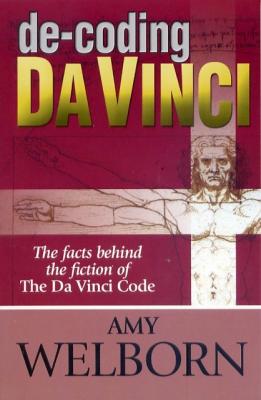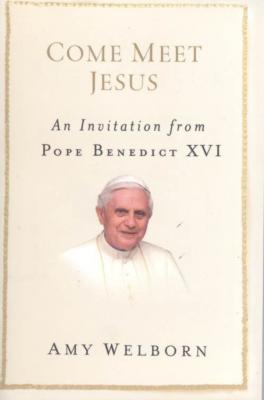In an exclusive Q&A, Catholic Books and Gifts talks with the author of De-Coding Da Vinci about her life, her work and her faith.
Dan Brown's The Da Vinci Code became a bestseller after its 2003 release. Director Ron Howard's 2006 film adaptation received acclaim as well. But what most do not know is that both contain blatant inaccuracies and fabrications about the Catholic Church portrayed convincingly as historical truth--this was even pointed out by credible sources in the secular media, including The New York Times. The Vatican called for a boycott. Regardless, many read the book and saw the film--Catholics and non-Catholics alike--and suddenly the Church came under scrutiny due to these popularized misrepresentations. And after 2009's Angels and Demons, the faithful again went on the defensive. De-Coding Da Vinci sets the record straight: Dan Brown's novels are a work of fiction, intended only to entertain. In her book, Amy Welborn points out Brown's discrepancies and corrects them with references from Scripture, dogma and the rich Tradition of our faith. In the process, she shows us that the truths are far more interesting than the lies anyway. In March of 2010, Welborn took some time to talk with Catholic Books and Gifts about her upcoming projects, her writing career as an apologist and her Catholic faith.
CB&G: When did you first realize you wanted to be a writer of Catholic apologetics? AW: The desire to write really coalesced for me in the mid-eighties when I moved to Florida and got a look at the Florida Catholic newspaper. I noticed that all the columnists were male, older and were priests. I was in my mid to late twenties at that time and thought they could use a different voice in their columns. I wrote to the editor and asked if I could submit something. He said sure, he liked it, and I started writing columns--first for the Florida Catholic, then for Catholic News Service for several years and then for Our Sunday Visitor. Apologetics was a good topic as I was teaching high school Religion and grew frustrated with the poor quality of materials. Apologetics, in particular, was a huge gap in high school curricula. CB&G:: Where do your topic ideas come from? What influences you to address these topics? AW: Most of my book topics come from editors. Many readers are surprised to learn that ideas for books come from both directions--authors and publishers. Most of my books have been written because an editor decided their publishing house needed a book on a certain topic--like apologetics, saints, Da Vinci Code, Mary Magdalene--and they would ask me to write it. Three of my books have been totally my idea: The Words We Pray (Loyola), Here. Now. A Catholic Guide to the Good Life (Our Sunday Visitor) and Come Meet Jesus: An Invitation from Pope Benedict XVI (Word Among Us). CB&G: How have you grown, intellectually or spiritually, because of your writing? AW: I've grown a lot because of my writing because I really do consider and accept a request from an editor to write a book on a certain topic as a push from God. It's a topic I need to know more about or it's a topic God knows will meet some gap in my spiritual life.
CB&G: What advice would you give to up-and-coming writers, especially those wanting to tackle apologetics? AW: You have to be aware of the questions that real people have. At the same time you have to have the gift of helping those people see that the answers to those questions point them to the mercy of God, not winning an argument just for the sake of winning. CB&G: How do you deal with writer's block? AW: Work. Pray. Realize that your little project is not the keystone holding Western Civilization or the Catholic Church from collapsing. You just have to do what you can, humbly. Stepping away from the computer usually breaks it. CB&G: What are you working on now? AW: I'm working on a number of smaller projects including revisions of a couple of my late husband Michael Dubriel's books. I am revising his How to Book of the Mass so it reflects the upcoming new translation of the Mass. I am also preparing an independently published edition of The Power of the Cross--even though Our Sunday Visitor has put it out of print, it is a very good book, one that Michael was proud of and one that many people appreciate. CB&G: What is your favorite passage of Scripture and how does this guide you as an apologetic writer? AW: One of my top three favorites is Genesis 50:20 in which Joseph says to his brothers, "Even though you meant harm to me, God meant it for good, to achieve his present end, the survival of many people." This captures the whole of salvation history as well as the drama and complexity of human life. I think it also is good for apologists to remember, knowing God can use anything to reach a person's heart, even our own weak efforts--and even our mistakes. |
|
|



